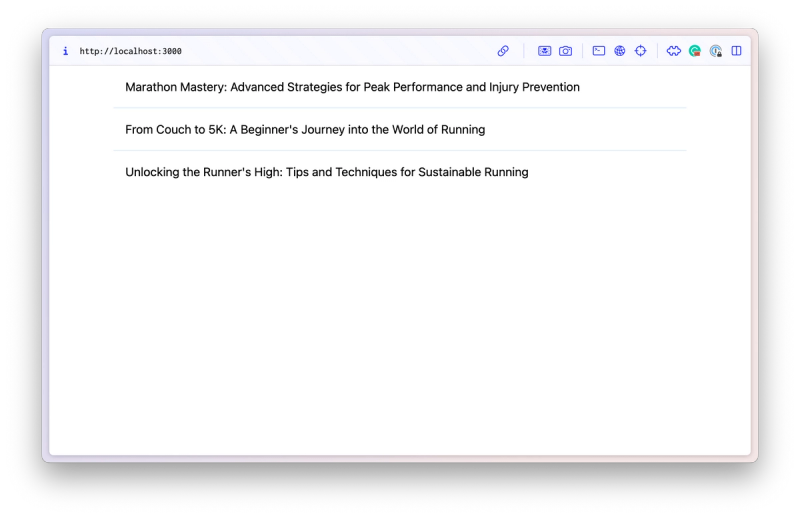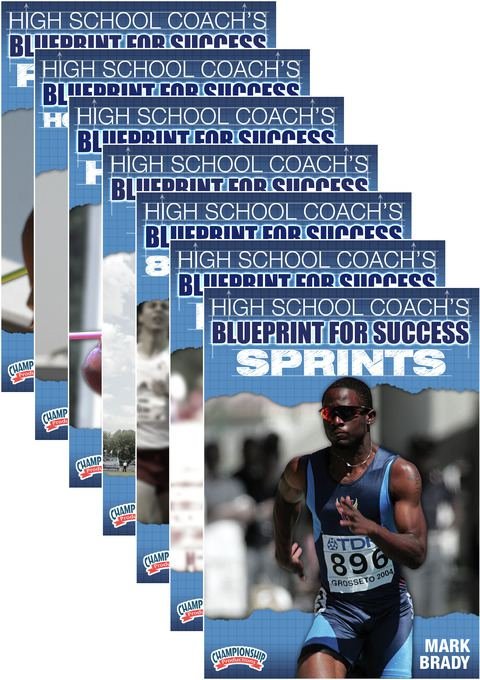Essential marathon training tips include building endurance steadily and incorporating rest days. Tailor your diet to fuel performance and recovery.
Embarking on the journey to complete a marathon requires a blend of determination, strategy, and adaptability. As your goal inches closer, it’s crucial to expand your running mileage progressively to allow your body to adapt without injury. Quality rest days are just as important, offering your muscles time to heal and strengthen.
Nutrition plays a pivotal role, as your body demands the right mix of carbohydrates, proteins, and fats for sustained energy and efficient muscle repair. A smart training plan will also weave in cross-training to enhance overall fitness while reducing the risk of running-related injuries. Equipping yourself with these fundamental tips ensures you are not only prepared for the marathon itself but also enjoy a healthier training process. Remember, consistency is key, and listening to your body is non-negotiable.
Building Your Marathon Base
Building Your Marathon Base is like laying the foundation for a strong, sturdy house. A solid base phase in marathon training prepares your body for the intense mileage ahead. A proper base does more than just add miles to your legs. It conditions your heart, muscles, and mind for the long runs. Read on to learn how to ramp up your training effectively.
Gradual Distance Increase
Patience pays off when you’re increasing running distances. Think of your body as a machine that gets stronger with use. Each week, aim to run a bit farther than the last one. A safe rule to follow is the 10% increase. This means not boosting your weekly mileage by more than 10%. This slow but sure method helps prevent injury and builds endurance consistently.
Easy Run Importance
Easy runs are the bread and butter of base building. Don’t undervalue them. These runs train your body to burn fat efficiently and improve blood circulation. They also allow you to recover from the hard training days. Follow a pace that lets you chat without gasping for air. This pace should feel gentle and sustainable. Mark easy runs on your calendar as important as speed workouts or long runs.

Credit: m.facebook.com
Planning The Perfect Training Schedule
Embarking on a marathon is an exhilarating challenge. It requires dedication, planning, and a well-thought-out training schedule. Crafting the perfect marathon training plan is critical for success. Let’s break down the key components to help you cross that finish line with flying colors.
Balancing Running And Rest
Adequate rest is as crucial as the miles you run. Your body needs time to recover and strengthen after each run.
- Run: Schedule your running days to gradually increase in distance.
- Rest: Include at least one full rest day per week to allow for recovery.
- Listen to Your Body: Don’t ignore pain. Adjust your training accordingly.
Cross-training Benefits
Cross-training is a runner’s ally. It enhances your fitness while reducing the impact on your running muscles.
| Activity | Benefits |
|---|---|
| Cycling | Builds endurance without excess stress on joints. |
| Swimming | Improves cardiovascular fitness and provides full-body workout. |
| Yoga | Enhances flexibility and aids in injury prevention. |
Incorporating Tune-up Races
Tune-up races prepare you mentally and physically for the main event. They help gauge your progress and simulate race-day conditions.
- Choose races: Pick a 5K or 10K approximately six weeks before your marathon.
- Test strategies: Use these races to refine your pacing and nutrition plan.
- Adapt training: Adjust your schedule based on performance and recovery times.
Nutritional Strategies For Runners
Welcome to the dynamic world of marathon training, where your diet plays a crucial role in your success. As you clock up the miles, understanding and implementing effective nutritional strategies will not only fuel your runs but will also aid in recovery and performance enhancement. Let’s delve into the essentials of optimizing your diet, maintaining hydration, and applying carb loading techniques tailored for runners.
Optimizing Your Diet For Endurance
Endurance athletes need balanced nutrition to perform at their best. This means eating a variety of foods loaded with essential vitamins and minerals. Aim for a mix of complex carbohydrates, healthy fats, and lean proteins. Here is a breakdown of what your plate should include:
- Complex Carbohydrates: Brown rice, quinoa, oats, and whole-grain breads fuel long runs.
- Healthy Fats: Avocados, nuts, and seeds offer sustained energy.
- Lean Proteins: Chicken, fish, tofu, and legumes support muscle repair.
Hydration Tactics
Staying hydrated is key to avoiding cramps and fatigue. Drink water regularly, not just when you’re thirsty. On long run days, increase your fluid intake. Here’s how to keep well-hydrated:
| Time | Hydration Strategy |
|---|---|
| Before Run | Drink 16 oz of water 2 hours prior. |
| During Run | Sip 4-6 oz every 15-20 minutes. |
| After Run | Rehydrate with water or a sports drink. |
Carb Loading Do’s And Don’ts
Carb loading can enhance your energy reserves. Yet, timing and quantity matter. Here are the best practices:
- Do: Increase carb intake 3-4 days before the race.
- Do: Choose easily digestible carbs like pasta and rice.
- Don’t: Overeat or introduce new foods right before the race.
- Don’t: Ignore fiber, but keep it moderate to avoid digestive issues.

Credit: www.sanity.io
Injury Prevention And Recovery
Injury prevention and recovery play a crucial role in marathon training. Ensuring your body is prepared to withstand the demands of long-distance running can make the difference between achieving your goals or facing setbacks. Here, we delve into how you can keep your body injury-free and what steps to take when recovery is necessary.
Recognizing Early Injury Signs
To prevent long-term damage, noticing early signs of injury is key. Common symptoms include:
- Persistent pain during or after runs
- Swelling in the joints or tendons
- Reduced range of motion
- Increased discomfort after cooling down
Listen to your body and address these signs promptly.
Restorative Techniques
Adopting restorative techniques aids recovery and prepares the body for upcoming training sessions. Some effective methods include:
- Ice therapy for reducing inflammation
- Elevation of limbs to decrease swelling
- Compression garments to enhance circulation
- Adequate sleep for optimal body repair
Combine these with a balanced diet rich in anti-inflammatory foods to quicken healing.
The Role Of Stretching And Strength Training
Stretching and strength training are essential for a resilient body. Aim to include:
| Activity | Benefits |
|---|---|
| Dynamic stretching | Improves flexibility and prepares muscles for runs |
| Static stretching | Assists in cool-down and reduces muscle tightness |
| Strength exercises | Builds core and leg strength to support joints |
Including these in your routine can enhance overall performance and ward off injuries.
Race Day Preparedness
The big day has arrived. After months of training, it’s time to put your hard work to the test. How you manage the race itself can make all the difference. Focus on pacing, mental strength, and the correct gear. Let’s break down these crucial aspects.
Pacing Strategies
Start slow, finish strong. This is the golden rule of marathon pacing. Splitting the race into sections helps. Consider adopting a negative split strategy. This means running the second half faster than the first. Keep your pace even and controlled.
- Avoid starting too fast to save energy for the later miles.
- Monitor your pace through a trusted running watch or app.
- Stay with a pace group to help maintain a steady rhythm.
Mental Fortitude
Running is a mental game. Stay positive and break the race into manageable segments. Use mantras and positive self-talk to push through tough moments. Visualize crossing the finish line.
Remember your training. You’ve done this during your long runs. Stay confident and trust your preparation.
Gear And Equipment Checklist
Wearing the right gear is critical. Ensure everything you plan to use is tried and tested. Never wear new shoes on race day. Check the weather forecast to dress appropriately.
| Category | Checklist |
|---|---|
| Footwear |
|
| Clothing |
|
| Accessories |
|
| Nutrition |
|

Credit: www.amazon.com
Post-marathon Recovery
Crossing the marathon finish line is an epic moment of triumph. Yet, what you do in the hours and days after your race can make a huge difference in your athletic progress, injury prevention, and overall well-being. Embrace these post-marathon recovery essentials to bounce back stronger and smarter.
Effective Cool-down Practices
- Gradually reduce your pace to a walk
- Stretch major muscle groups to prevent stiffness
- Consider a light massage to ease muscle tightness
Nutrition For Repair And Recovery
| Timeframe | Nutrients | Food Suggestions |
|---|---|---|
| 0-2 hours post-race | Protein, Carbohydrates | Fruit, Yogurt, Smoothie |
| 2-24 hours post-race | Antioxidants, Vitamins | Mixed Berries, Salad, Nuts |
| 24-72 hours post-race | Healthy Fats, Fiber | Avocado, Whole Grains, Leafy Greens |
Evaluating Performance For Future Races
- Record your race experience in a journal
- Note the highs and lows of your performance
- Identify specific areas for improvement
- Plan new strategies and training adjustments
Frequently Asked Questions For Essential Marathon Training Tips
What Is The Best Marathon Training Plan?
The best marathon training plan is personalized to your experience, schedule, and goals. Look for a plan that includes varied workouts, rest days, and tapering. It should build mileage gradually to prevent injuries while enhancing endurance.
How Long To Train For A First Marathon?
Training for a first marathon typically takes 18 to 30 weeks. Beginners should opt for longer programs to safely build endurance. Start with shorter runs and weekly mileage increases of 10% to avoid overtraining and injuries.
Can I Run A Marathon Without Training?
Running a marathon without training is highly discouraged. It can lead to serious injuries and negative health effects. Proper training prepares your muscles, heart, and joints for the strain of 26. 2 miles and enhances performance and recovery.
What Should I Eat During Marathon Training?
During marathon training, focus on a balanced diet rich in complex carbohydrates, lean proteins, healthy fats, and hydration. Carbs fuel long runs, proteins aid in muscle repair, and fats provide necessary nutrients. Stay hydrated with water and electrolyte drinks.
Conclusion
Embarking on a marathon journey requires dedication and smart preparation. With these tips, set your sights on the finish line confidently. Remember, consistent training, proper nutrition, and listening to your body are pivotal. As race day approaches, trust in your training and look forward to the rewarding experience ahead.
Happy running!

